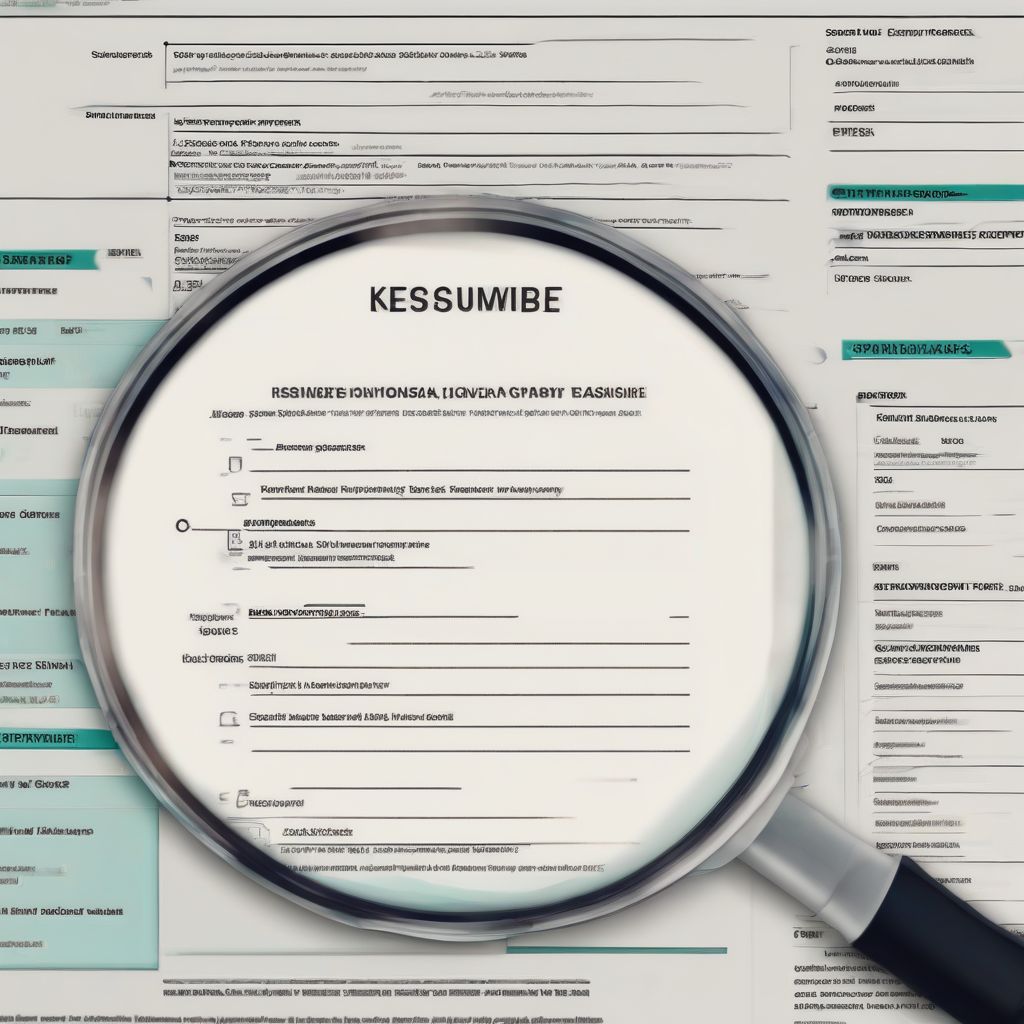You’ve spent hours polishing your skills, gained valuable experience, and now you’re ready for a career move. But there’s one crucial hurdle standing between you and your dream job: a compelling resume. In today’s competitive job market, a generic resume simply won’t cut it. You need a resume that not only showcases your qualifications but also grabs the attention of hiring managers and makes you stand out from the crowd.
As a nutritionist and meal prep coach who helps people achieve their health goals, I understand the importance of presenting information in a clear, concise, and appealing way. The same principles apply to crafting a powerful resume. Think of it as your personal marketing tool, designed to highlight your unique strengths and persuade potential employers that you’re the perfect fit for the role.
Understanding the Modern Resume Landscape
Gone are the days of cookie-cutter resumes that blend in with the masses. Today, hiring managers are looking for resumes that tell a story, demonstrate value, and showcase your personality. They want to see how your skills and experience align with the specific requirements of the position and the company culture.
Keywords: Your Secret Weapon
Imagine searching for a recipe online. You’d use specific keywords to find exactly what you’re looking for, right? The same applies to your resume. Recruiters and employers use Applicant Tracking Systems (ATS) to sift through hundreds, sometimes thousands, of applications. These systems are designed to identify keywords related to the job description.
To optimize your resume for ATS and human readers:
- Analyze the Job Description: Identify the key skills, qualifications, and experience emphasized in the job posting.
- Incorporate Keywords Naturally: Weave these keywords naturally throughout your resume, especially in your skills section and work experience descriptions.
 Resume Keywords
Resume Keywords
LSI Keywords: Adding Context and Relevance
While primary keywords are essential, don’t underestimate the power of Latent Semantic Indexing (LSI) keywords. These are terms related to your primary keywords and help provide context and relevance to your resume. For instance, if a primary keyword is “project management,” LSI keywords could be “Agile methodology,” “budget allocation,” or “team leadership.”
Crafting a Resume That Captivates
Now that you understand the importance of keywords, let’s delve into the elements of a compelling resume:
1. The Power of a Strong Opening Statement
Your resume’s opening statement, whether it’s a concise objective or a captivating summary, is your chance to make a powerful first impression.
- Tailor Your Objective: If you choose an objective, keep it brief (one to two sentences) and focus on your specific career goals and how they align with the company’s mission.
- Craft a Compelling Summary: A summary statement highlights your most relevant skills, experience, and accomplishments, demonstrating your value proposition to the employer.
Example:
“Results-oriented marketing professional with 5+ years of experience in driving brand awareness and generating leads. Proven ability to develop and execute successful digital marketing campaigns, manage social media strategies, and analyze data to optimize performance.”
2. Showcasing Your Experience: Action Verbs and Quantifiable Achievements
Your work experience section should go beyond simply listing your previous roles and responsibilities. It should highlight your accomplishments and demonstrate how you added value to previous employers.
- Use Action Verbs: Start your bullet points with strong action verbs like “managed,” “developed,” “increased,” “implemented,” or “achieved.”
- Quantify Your Achievements: Whenever possible, use numbers, percentages, or specific metrics to quantify your accomplishments.
- Focus on Impact: Instead of just listing tasks, emphasize the positive impact your work had on the company.
Example:
Instead of: “Managed social media accounts”
Write: “Grew social media following by 30% in 6 months, resulting in a 15% increase in website traffic.”
3. Highlighting Your Skills: Relevance is Key
Your skills section should showcase your technical and soft skills relevant to the job you’re applying for. Tailor this section to each job description, focusing on the skills most aligned with the role.
- Technical Skills: List specific software, tools, or technical proficiencies.
- Soft Skills: Include skills like communication, teamwork, problem-solving, and critical thinking.
Pro Tip: Consider creating a separate “Core Competencies” or “Areas of Expertise” section to highlight skills directly related to the job requirements.
[amazon bestseller=”resume writing”]
4. Education and Additional Information
- Education: List your degrees in reverse chronological order, including the institution’s name, location, and graduation date.
- Certifications and Licenses: Include any relevant certifications, licenses, or professional development courses.
- Awards and Recognition: Showcase any accolades or recognition you’ve received.
5. The Importance of Proofreading and Formatting
- Proofread Meticulously: Errors in grammar, spelling, or punctuation can be detrimental to your application.
- Use a Clean and Professional Format: Choose a font that is easy to read, use clear headings and subheadings, and ensure consistent spacing.
- Tailor Your Resume: Customize your resume for each job application, highlighting the skills and experience most relevant to the specific role.
Conclusion
Your resume is your opportunity to make a lasting impression on potential employers. By incorporating these strategies, you can craft a compelling resume that not only showcases your qualifications but also reflects your unique personality and value proposition. Remember to tailor your resume to each job application, highlight your accomplishments with quantifiable data, and use keywords strategically.
Now that you have the tools to create a standout resume, go out there and land your dream job! What other tips do you have for creating a compelling resume? Share your thoughts and experiences in the comments below!
